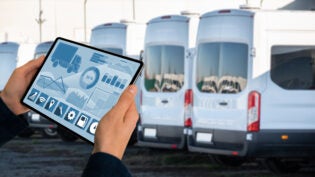
The start of the new decade has been disruptive, to say the least. Between Australia’s devastating bushfires and COVID-19, small businesses have been hit hard by unavoidable economic conditions. But by the same token, for many of these businesses the internet has proven to be a lifeline, helping them to continue to operate and even to find new revenue opportunities.
What’s worth noting is that many of the trends that the conditions of early 2020 have created will continue, even as things return to “normal”. One of the most common ways that businesses have looked to deal with COVID-19 is to allow staff to work from home.
Nowadays, businesses are discovering that when employees work from home, they’re more productive. In fact, most employees will often do an additional 1.4 days’ work per month — when they aren’t dealing with a long commute. As a result, one leading analyst firm has found that almost half (41 percent) of employees will continue to work from home in some capacity, even after pandemic restrictions lift.
The internet is also changing how organisations work, and those organisations that weren’t previously heavy users of the internet are now finding the need to become much more actively involved.
Two key findings of small businesses in 2020
1. Social Media is more important than ever
Even if you’re not actively selling products over the internet, social media is a critical resource for staying in touch with customers and keeping them informed about the business.
As the old truism goes, it’s easier to keep existing customers than find new ones – anything from 5 – 25% easier, as research has found. Sharing blog posts, getting people to follow you on Facebook and Twitter, creating helpful videos for YouTube, and engaging in productive online discussions with customers helps to remind them that you exist and that they have a great experience in engaging with your business.
Part-and-parcel with this is influencer marketing. Advertising in newspapers and on television no longer has the same impact that a good word from a top influencer can have. Small businesses should be making lists of influencers that focus on their field and then reaching out to them for content and review opportunities.
2. eCommerce is a cornerstone to modern business
By 2021 there will be $5 trillion spent in eCommerce worldwide, meaning that if you’re actively selling online, you’re missing a trillion-dollar opportunity. The great thing about selling products and services online is that you open yourself to a global audience, with all the opportunities to find new niches for your products that that entails.
However, just as success with brick-and-mortar retail stores is all about the experience, so too is online, and you’ll need a good online shopping platform and high-quality website to encourage customers to put faith in your brand and place that order.
What this will mean for how businesses use the internet moving forward
Even the smallest business is about to become much more complex in the way that it uses the internet. Some of these changes are mandatory – for example, in Australia, the rollout of the nbn™ will mean that phone systems, security, and even the EFTPOS system you use will need to be changed to continue to function over the internet.
Other shifts will be because, very simply, the organisation wants to do business better. Enabling video conferencing to hold meetings with remote employees or clients on the other side of the planet, as an example, requires solid and reliable internet speeds – and a business nbn™ plan that gives you access to those required speeds. Shifting the phone systems away from traditional landlines to Cloud-based VoIP systems allows even the smallest business to roll out enterprise solutions such as automatic call-forwarding, which will ensure that businesses never miss out on critical calls.
Other businesses will turn to their ISPs for services such as website hosting and management. The more an organisation comes to rely on the internet and eCommerce, the greater the impact if the website should experience downtime or an outage. By finding the right hosting provider, the organisation will be able to mitigate risk and guarantee an adequate level of uptime.
Finally, organisations will find themselves needing greater speeds and much more bandwidth to work with. Video, for example, is critical in participating online. There are over a billion YouTube users, 45 per cent of people watch more than an hour of Facebook or YouTube videos each week, and 87 per cent of online marketers use video content for that reason.
However, to make the most of the video, your business will need a fast internet connection to upload and share the media quickly. With the increase of online activity, you should also be ensuring your employees are using a professional and reliable VPN service to prevent malicious attacks and encrypt company data.
The future business landscape
All of the above is going to mean that small businesses take a renewed look at their employees’ internet, their online presence, and how they are engaging with their customers. The digital revolution is still in its infancy, and the events of 2020 have resulted in increased adoption of internet-based practices that many small businesses may not have adopted for years to come.
1617 Views














